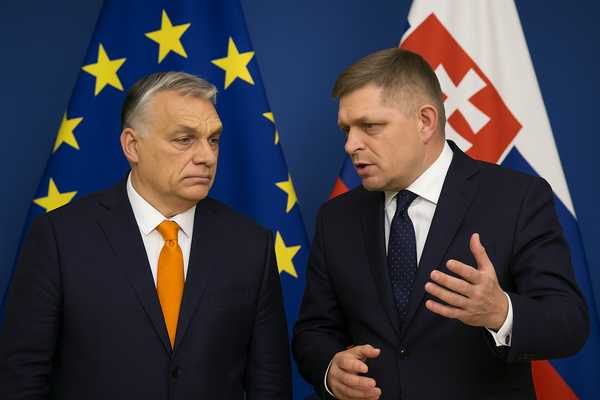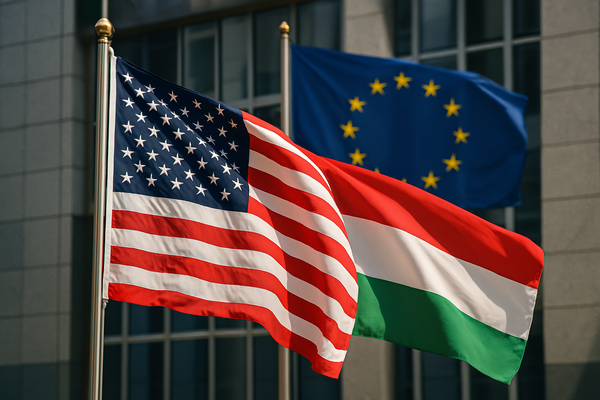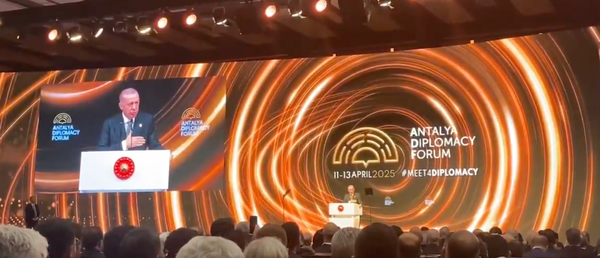
Orbán’s Washington play: siding with Trump, challenging Brussels
Hungary’s leader seeks U.S. sanctions waiver and political leverage in Washington
Orbán’s November 7 White House visit—the first since Trump’s return to office—produced both symbolic and material results, including new energy, defence, and academic cooperation. Hungary announced a full exemption from U.S. sanctions on Russian energy, though Reuters and the Associated Press reported that Washington limited it to one year.
Prime Minister Viktor Orbán’s visit to the White House on November 7 2025 marked the first high-level U.S.–Hungary meeting since Donald Trump’s return to office. In Budapest, it was celebrated as a breakthrough—the start of a “golden era” in bilateral ties after years of tension under the Biden administration.
Talks focused on energy security, sanctions policy, and the future of transatlantic cooperation. Hungary, heavily dependent on Russian oil and gas, has long sought exemptions from Western sanctions it argues threaten its economy.
Following the meeting, Hungarian officials announced that the U.S. had granted a “complete exemption” from Russian-energy sanctions—hailed by Orbán as the visit’s greatest success. However, both Reuters and the Associated Press quoted U.S. officials confirming the exemption lasts one year. The State Department’s official fact sheet does not mention any waiver, leaving the duration unverified in writing.
Orbán also reportedly raised the war in Ukraine, expressing hope to mediate a future Trump–Putin summit. The State Department highlighted new initiatives across energy, defence, research, and education, portraying Hungary as one of Washington’s key Central European partners.
Energy cooperation at the core
The visit’s centrepiece was energy. A new U.S.–Hungary Memorandum of Understanding on civil-nuclear cooperation paves the way for collaboration on Small Modular Reactors (SMRs) and spent-fuel storage. Hungary aims to make Budapest a regional SMR hub, potentially overseeing ten reactors worth up to $20 billion.
Orbán also announced a $114 million contract with Westinghouse Electric Company to supply nuclear fuel to the Paks I plant. Hungary further committed to purchasing about $600 million in U.S. LNG, diversifying supply toward American markets.
Security and defence alignment
Hungary plans to buy $700 million in U.S. defence articles through the Foreign Military Sales (FMS) program—roughly a quarter of its annual defence budget—signalling deeper strategic alignment with Washington. Defence Minister Kristóf Szalay-Bobrovniczky indicated that Hungary will likely purchase HIMARS multiple-launch rocket systems as part of the deal, underscoring a shift toward U.S.-made equipment. Talks were also launched to renew the General Security of Military Information Agreement (GSOMIA), strengthening intelligence sharing and defence-technology safeguards.
Academic and people-to-people links
Educational exchange expanded as the Fulbright Commission and Pannónia Scholarship Program announced a broadened John von Neumann Distinguished Award in STEM, with Hungary matching U.S. funding to mark America’s 250th anniversary in 2026.
A $1 million AI ethics research consortium will link The Catholic University of America and Pázmány Péter Catholic University, while MIT’s Center for International Studies and the Hungarian Research Network (HUN-REN) launched the MIT–Hungary Seed Fund for joint projects.
Travel and connectivity
The United States fully restored Hungary’s Visa Waiver Program privileges, reinstating visa-free travel, and American Airlines will resume direct flights between Philadelphia and Budapest in May 2026, strengthening business and cultural exchange.
U.S. reactions: a tightrope between Trump and Putin
While much American media focused elsewhere that week, several outlets covered the visit’s geopolitical meaning.
The Wall Street Journal described Orbán as “walking a tightrope between Trump and Putin,” quoting one analyst:
“Orbán is playing both sides—seeking energy security from Russia and political legitimacy from Trump’s America.”
The Washington Times emphasized Orbán’s criticism of the previous U.S. administration—“everything was rigged”—and noted Trump’s praise for Hungary’s hard-line immigration policy. Fox News reported live that Trump was considering an exemption on Russian-oil sanctions, citing Hungary’s geographic constraints. The Washington Post stressed that Orbán’s priority was securing sanction relief, while the New York Times framed the meeting as testing Western unity on Russia.
Concern and caution in Europe
According to the European Commission, the Hungarian–American agreement exempting Hungary from U.S. sanctions does not alter the EU’s plan to phase out Russian oil and gas imports by 2027, and the interpretation of Washington’s decisions remains solely within the competence of the United States. European Union leaders, preoccupied with the COP30 climate conference, have not yet commented on the Hungarian–American agreement. Nor has Slovak Prime Minister Robert Fico, whose country faces a similarly acute dependence on Russian energy, and align with Trump rather than the "coalition of the willing" in matters concerning the war in Ukraine.
Despite the European Commission’s confident assurances, Politico reported that EU officials fear the deal could undermine Europe’s collective pressure on Moscow and delay the planned phase-out of Russian energy by 2027. Euronews described the White House visit as a political boost for Orbán, calling it an “election gift.” The outlet quoted former MEP and ambassador István Szent-Iványi, who argued that the meeting was more a success for the U.S. administration than for Hungary. He noted that no agreement on the avoidance of double taxation had been reached and suggested that Budapest may have paid a high price for the sanction’s exemption.
According to The Guardian, Orbán’s well-targeted flattery toward Trump paid off, helping him strengthen his domestic standing at a moment when his government faces growing pressure from the opposition movement Tisza, which is currently leading in the polls. The Kyiv Independent highlighted that critics reject Orbán’s claim that replacing Russian oil would cause an economic crisis.
While Orbán’s Washington visit brought both symbolic legitimacy and strategic promises —from energy to defence—it also positioned Hungary closer to Washington, testing Europe’s cohesion in the process. Whether this strategy succeeds will hinge on the extension of the U.S. exemption and on how far EU partners are willing to push back. For now, Orbán has once again placed Budapest at the centre of Europe’s energy and diplomatic debate.





